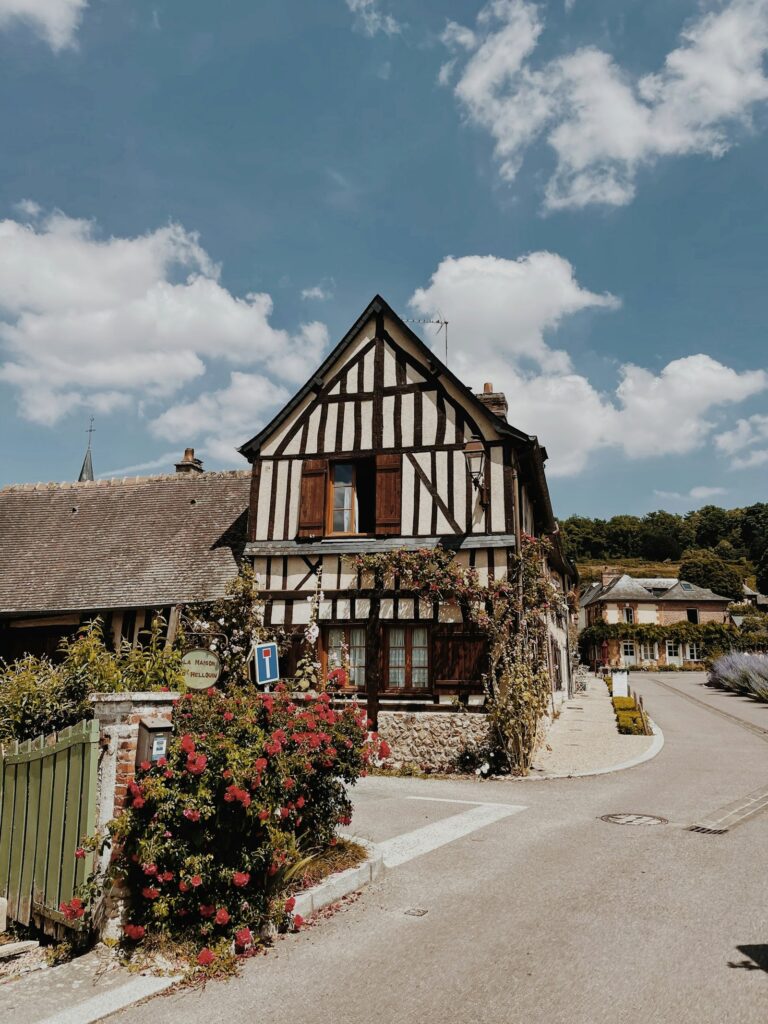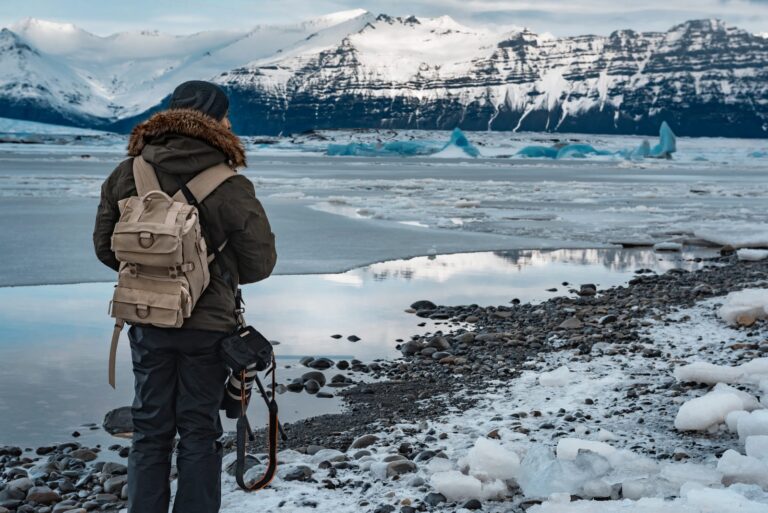Do They Speak English in Iceland? Exploring Language and Communication in the Land of Fire and Ice
Visiting Iceland can be an exciting adventure, and knowing the language can make your experience even better. You might wonder, almost everyone in Iceland speaks English fluently, making it easy for you to navigate your travels without language barriers.
This strong proficiency in English is a result of the country’s education system and widespread exposure to English media.
As you explore the stunning landscapes, from geysers to glaciers, you’ll find that communicating with locals is not only simple but often enjoyable. Whether you’re ordering food or asking for directions, you’ll likely be greeted with a friendly smile and a helpful response.
The warmth of the Icelandic people adds a unique charm to your visit, making it feel even more welcoming.
With so many Icelanders speaking English, you can focus on what truly matters: soaking in the breathtaking beauty around you and immersing yourself in a rich culture. Understanding the linguistic landscape of Iceland will enhance your travel experience, freeing you to fully enjoy everything this remarkable country has to offer.

Overview of English in Iceland
In Iceland, English has become an integral part of daily life, influenced by historical developments and its current usage. Understanding these aspects will give you insight into how widely English is spoken and its importance in Iceland.
Historical Influence of English
English began making its mark in Iceland in the 19th century, largely due to cultural exchanges and trade with English-speaking nations.
As Iceland opened up to the world, especially during the 20th century, English language exposure grew through literature, education, and media.
The introduction of radio and television significantly boosted the presence of English in Icelandic homes. American culture, especially after World War II, also contributed. This historical context laid the groundwork for the high level of English proficiency observed today.
Current Prevalence of English Usage
Today, more than 90% of Icelanders can communicate in English fluently. This impressive figure positions Iceland among the top non-native English-speaking countries globally.
English is not just used in tourism; it permeates education, business, and everyday conversations. Many Icelanders learn English from a young age in schools, making it a vital second language.
You might find bilingual signs and public communications in both Icelandic and English, reflecting the importance of English in daily interactions. This widespread understanding makes it easier for visitors to connect and engage during their stay.
Language Education in Iceland
In Iceland, you will find a robust system of language education, particularly focusing on English as a second language. This system is designed to equip students with essential communication skills for both local and global interactions.
English in the Icelandic Education System
In Icelandic schools, English is taught from a young age, typically starting around the age of six. By the time students reach their teenage years, they have often achieved a high level of proficiency.
The curriculum is structured to develop listening, speaking, reading, and writing skills.
Most students engage with English through a mix of:
- Textbooks
- Multimedia resources
- Interactive activities
Such methods ensure that students gain practical language skills relevant to everyday life. Due to this emphasis on English, many Icelanders feel comfortable conversing with international visitors.
Language Courses and Resources
In addition to regular school programs, you will find a variety of language courses available for adults and non-native speakers.
Many universities and private institutions offer focused English courses that cater to different skill levels.
These courses can range from:
- Basic English for beginners
- Advanced business English
Many resources are also available online, including language apps, podcasts, and websites offering free exercises. Public libraries often host language clubs where you can practice your skills in a supportive environment.
Whether you are a student or a tourist, Iceland’s language education provides numerous opportunities to enhance your English proficiency.

English in Daily Life in Iceland
In Iceland, English plays a significant role in various aspects of daily life. From the workplace to the vibrant tourism industry, and even in media and entertainment, the prevalence of English is notable.
English in the Workplace
In many Icelandic companies, English is the primary language of communication, especially in industries with international connections.
Over 90% of the population speaks English fluently, making it easy for expatriates and tourists to find work and engage in business discussions.
Many Icelanders begin learning English at a young age, typically in elementary school. This early exposure helps foster a comfortable working environment for English speakers.
You will often find English used in official documents, emails, and meetings, enabling effective collaboration among diverse teams.
English in Tourism and Hospitality
Iceland’s booming tourism sector heavily relies on English, both for attracting visitors and providing services.
Tour guides, hotel staff, and restaurant employees are usually fluent in English, ensuring you can easily communicate your needs.
Signage and informational materials are often available in English at popular tourist sites, making it accessible for international travelers. This emphasis on English helps create a welcoming atmosphere, as many Icelanders take pride in speaking the language and assisting visitors.
English in Media and Entertainment
You will find that English also dominates Icelandic media and entertainment. Many films, television shows, and online content are available in English, which caters to a wide audience.
Local stations often air popular series and movies in their original languages with subtitles.
Furthermore, English is a common language in music and literature. Many Icelandic artists incorporate English into their songs, making it easier for international fans to connect with their work. This blend of languages reflects Iceland’s cultural openness to the global community.
Conversations with Locals
Engaging with locals in Iceland can be a rewarding experience. You’ll find that most people are eager to chat, and understanding some common practices can enhance these interactions.
Common Lingual Etiquette in Iceland
When conversing with Icelanders, a friendly and respectful approach is key. Start with a warm greeting, such as “Halló” or “Góðan daginn.” Using simple phrases in Icelandic, even if you’re not fluent, can show appreciation for their culture.
When asking questions, be clear and concise. Icelanders appreciate directness, so avoid overly complicated inquiries.
Listening attentively and showing interest will encourage locals to engage more.
It’s also considered polite to maintain eye contact during conversations. This demonstrates respect and attentiveness. Lastly, don’t hesitate to ask for clarification if you don’t understand something; most people will happily help out.
English Proficiency Among Different Age Groups
In Iceland, English proficiency varies slightly among different age groups. Generally, younger generations speak fluent English. Most have learned it in school from a very early age.
Age Group Breakdown:
- Children and Teenagers: Near-native proficiency. They often use English in online games and social media.
- Adults (20-50 years): High levels of fluency. Many have traveled or studied abroad.
- Older Adults (50+ years): Proficient, but some may have heavier accents or varying comfort levels.
Despite the slight differences, you can expect to communicate effectively with people of all ages. This linguistic skill creates a welcoming atmosphere for tourists and fosters enjoyable conversations.
Signs and Public Information
When exploring Iceland, you’ll find that English is commonly used on signs and public information. Most tourist areas and urban centers display important information in both Icelandic and English.
Road Signs
- Speed limits and warnings are clearly marked in English.
- Directions to key locations are easy to understand.
Public Transport
Most bus stops and stations provide schedules and routes in English. This makes navigating city transport simple for you.
Tourist Attractions
At major sites, you’ll notice signs explaining the area in English. These provide useful insights without any language barrier.
Menus and Maps
Restaurants and cafes typically offer menus in both languages. Many tourist maps also display information in English, ensuring you won’t miss interesting sights.
This emphasis on English throughout the country makes your travel experience smooth. You can easily enjoy your adventures without worrying about communication challenges.

Business and Government
English plays a significant role in both Icelandic business and governmental contexts. Its prevalence helps establish strong international relationships and facilitates communication in various professional settings.
Role of English in Icelandic Business Affairs
In Iceland, English is often the primary language of communication in business environments.
Many companies, especially those that engage in international trade, require employees to have a good command of English. This proficiency allows for smoother negotiations and collaborations.
When participating in meetings, presentations, or conferences, you’ll find that English is commonly used.
Icelanders are known for their fluency, which can help bridge any communication gaps. A working knowledge of Icelandic can be beneficial, but mastering English is usually sufficient for navigating the business landscape.
Use of English in Government Contexts
In government, English is frequently employed in official documents and communications, particularly when dealing with international affairs.
Many Icelandic government officials are fluent in English, which aids in discussions with foreign entities.
Public institutions often provide information in English, ensuring accessibility for non-Icelandic speakers. This practice is especially evident in areas such as tourism, where clear communication is essential. Whether you’re dealing with local authorities or attending public events, English serves as a reliable lingua franca.
Cultural Aspects of Language in Iceland
Language in Iceland reflects a blend of tradition and modern influences, highlighting both the importance of Icelandic and the widespread use of English. You’ll find that Icelanders embrace English with an open attitude, often reinforcing cultural connections with the global community.
Attitudes Toward English Among Icelanders
Icelanders generally view English positively. Many appreciate its role as a global language, especially in business and tourism.
As a result, you’ll notice a high proficiency in English throughout the country.
In cities like Reykjavik, the use of English is commonplace. Even among those who primarily speak Icelandic, you’ll find that engaging in English conversations often leads to friendly interactions.
Key Highlights:
- Over 90% of the population can speak English fluently.
- English education starts early in schools, ensuring that you can communicate easily while visiting.
This openness fosters a welcoming environment for tourists, allowing you to connect effortlessly with locals.







